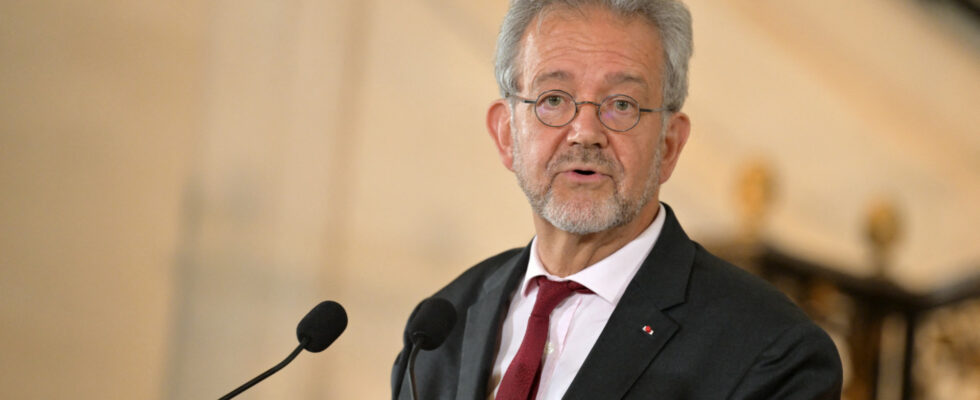Arthur de Laborde / Photo credits: Miguel MEDINA / POOL / AFP
modified to
10:05 a.m., February 15, 2024
Tuesday, the Council of State asked Arcom to better strengthen its control over the CNews news channel, particularly in terms of pluralism. But who is the vice-president of the Council of State, Didier-Roland Tabuteau, behind this decision?
The Council of State, contacted by Reporters Without Borders, asks Arcom, the media regulator, to strengthen its control over the continuous news channel CNews. It is no longer just a question of counting the speaking times of political guests, we should also take into account the interventions of columnists, presenters and guests. The Council of State mentions media pluralism, but many voices are raised against its vice-president, Didier-Roland Tabuteau and his links with the Socialist Party. What do we know about this 65-year-old shadowy man who plays a central role in the state apparatus?
He is a senior magistrate with a very left-wing influence who is currently at the head of the highest French administrative authority. Between 1988 and 2002, Didier-Roland Tabuteau worked through several socialist cabinets under Mitterrand, then Jospin, alongside ministers Claude Évin, Martine Aubry and Bernard Kouchner. In recent years, he has publicly defended left-wing reforms, such as the establishment of a large social security system absorbing mutual insurance companies.
Political vision of the legal field
Two years ago, Emmanuel Macron propelled Didier-Roland Tabuteau to the helm of the Council of State, of which he already heads the social section. The president would have liked to reward this service on the front line in the management of the Covid crisis, while the administrative jurisdiction had been relatively conciliatory with the government on attacks on public freedoms. The choice of Didier-Roland Tabuteau also amounts to assuming a very political vision of the legal field, far from the French administrative tradition, marking a strong attachment to ideological neutrality.
